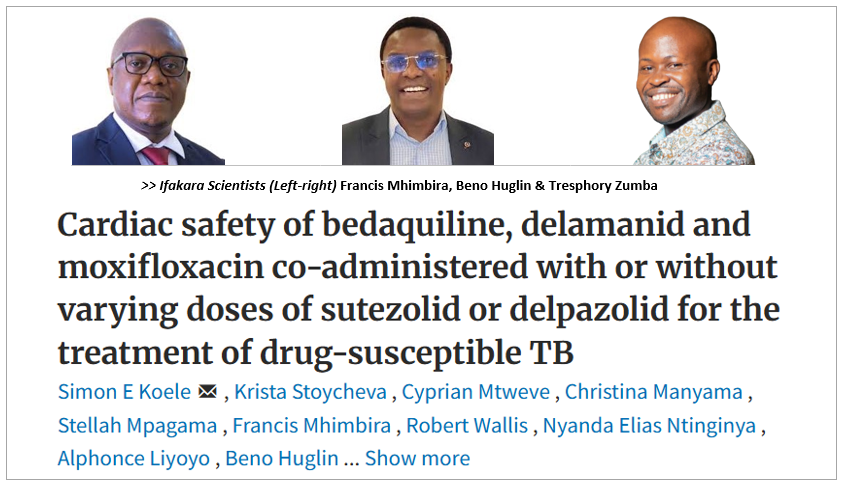
TB: Safer, more effective treatment may be closer than we think

New studies show strong potential for effective, less toxic therapies
Drug-resistant tuberculosis (TB) remains one of the most pressing global health challenges—especially in high-burden countries like Tanzania. Treatments that are currently available can be harsh, often leading to severe side effects including heart complications, nerve damage, and other toxicities that make long-term care difficult for patients to complete.
But promising findings from three new studies offer hope for a better way forward. Conducted across five TB trial sites in Tanzania and South Africa from 2021-2022, these studies tested two newer drug combinations to determine whether they could safely replace the widely used but toxic drugs. Results suggest that both alternatives can provide the same, if not better, treatment outcomes without the serious side effects.
The studies were conducted under the PanACEA consortium, a global research partnership, and published recently in peer-reviewed journals including The Lancet Infectious Diseases and the Journal of Antimicrobial Chemotherapy. Tanzanian scientists from the Ifakara Health Institute played a key role in the research, signalling the country’s growing leadership in tackling TB through science and innovation.
Why this matters now
Tanzania and other countries with high TB burdens need safer, shorter treatments. Treating drug-resistant TB has long relied on powerful drugs that are both difficult to tolerate and risky to use over time. In countries like Tanzania, where TB remains a major public health threat.
For that case, there is an urgent need for shorter, safer, and more effective regimens. These new findings may pave the way for exactly that—offering patients hope for recovery with fewer risks.
More: About this
A global effort with strong Tanzanian leadership
The studies were led by an international team of scientists under the PanACEA consortium, with support from researchers and institutions in Tanzania, South Africa, Germany, the Netherlands, the UK, Sweden, and the USA.
Notably, the Ifakara Health Institute played a major role, with three scientists—Dr. Francis Mhimbira, Beno Huglin, and Tresphory Zumba—contributing to study design, clinical trials, and data analysis. Research sites in Tanzania and South Africa provided real-world settings to test how well these new treatments would work in communities most affected by TB.
The studies were published in July 2025, and are part of a growing body of evidence aiming to inform the World Health Organization (WHO) and national TB programs on safer treatment standards.
What the studies revealed
💓 No added heart risks from the new TB combinations
One of the major limitations of many current TB drugs is their effect on the heart. The first study confirmed that combining the standard drugs bedaquiline, delamanid, and moxifloxacin with either sutezolid or delpazolid did not increase cardiac risk, providing reassurance for continued use in clinical trials and potentially future treatment protocols.
💊 Sutezolid boosts treatment strength with fewer side effects
The second study revealed that sutezolid not only strengthens the anti-TB effect of other medications but does so without causing serious toxic side effects, such as nerve damage (a known problem with linezolid). This makes sutezolid a strong candidate for replacing linezolid in future treatment regimens.
🌍 Delpazolid could be a safer option for global TB treatment
In the third study, delpazolid also showed strong antibacterial effects, especially at a once-daily dose of 1200 mg. It delivered similar treatment benefits without the high toxicity profile of older drugs. If confirmed in larger trials, delpazolid could become part of a shorter, safer standard treatment for drug-resistant TB worldwide.
The bottom line: hope for millions fighting TB
Together, these studies offer a clear signal: newer drugs like sutezolid and delpazolid may soon offer safer, equally effective alternatives to current treatments for drug-resistant TB. With Tanzanian researchers from Ifakara at the forefront, this research marks a significant contribution to global TB science—and a hopeful path forward for patients across the country and beyond.
📚 Read the full studies: Heart safety study | Sutezolid study | Delpazolid study
